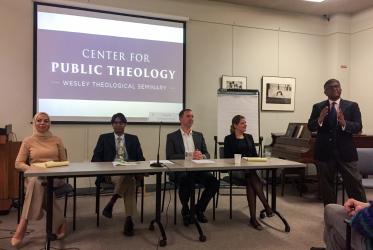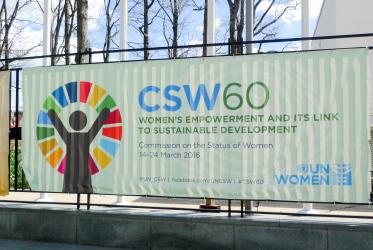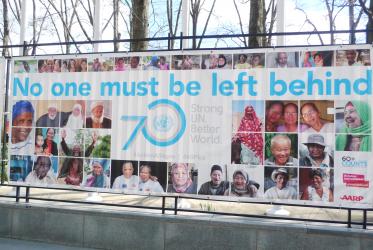Displaying 21 - 40 of 49
Religion: Way of war or path to peace?
30 June 2016
International affairs facilitator reflects on pilgrimage
31 March 2016
Religious leaders as agents of peace in the Americas
02 March 2016
Symposium focuses on religion, violence, extremism
04 February 2016
Faith organizations assess COP 20 on the way to Paris
28 January 2015
Christians around the world pray for unity
22 January 2015










